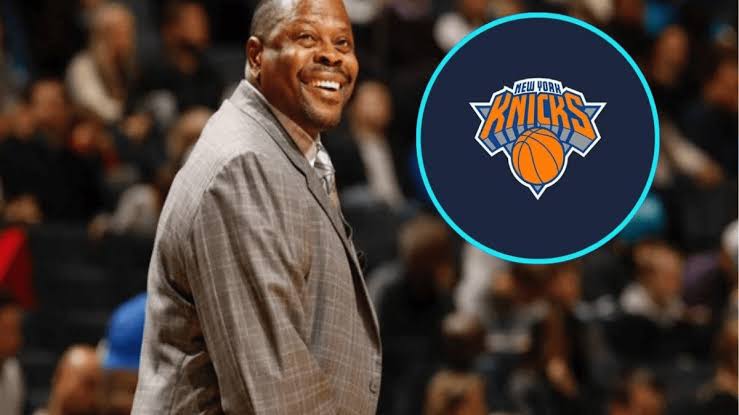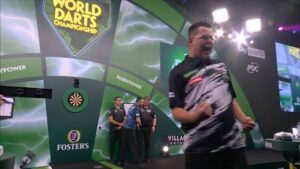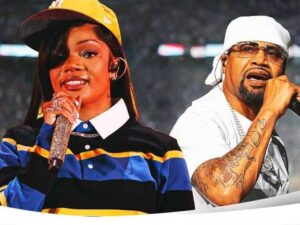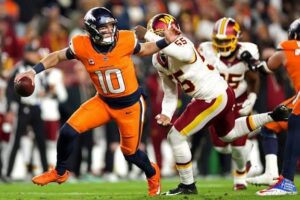I Just Got Tired of Hearing It”: Patrick Ewing Admits He Regrets Leaving Knicks Out of Spite

In a candid reflection on his storied NBA career, Hall of Famer Patrick Ewing has expressed deep regret over his departure from the New York Knicks in 2000, acknowledging that his decision was driven by frustration and a sense of disrespect. Ewing, who spent 15 seasons with the Knicks and became the franchise’s all-time leader in points, rebounds, blocks, steals, and games played, revealed that he left the team out of spite after feeling unappreciated by both teammates and the organization.
“After 15 years of hearing all the same things—’The team is better off without him,’ or hearing rumbles in the locker room from your teammates that, ‘We’re better off without him’—you just get sick and tired of it,” Ewing said in a 2016 interview. “So I’m like, you know what? Just let me go. Go be better off without me. I decided enough was enough and I asked for a trade.”
Ewing’s departure came after a series of playoff disappointments and internal tensions within the Knicks organization. Despite leading the team to two NBA Finals appearances in 1994 and 1999, the Knicks were unable to secure a championship during his tenure. Ewing’s frustration was compounded by what he perceived as a lack of support from the front office and coaching staff.
“He felt totally disrespected and he felt it was time for him to move on,” said Alonzo Mourning, a close friend and fellow NBA player. “He wanted to finish out his career there, I’m almost sure of that. But when you’re around people that don’t want you around, then you don’t want to be there yourself.”
After leaving the Knicks, Ewing played one season with the Seattle SuperSonics and another with the Orlando Magic before retiring in 2002. He later embarked on a coaching career, including a stint as head coach of the Georgetown Hoyas, his alma mater.
In 2024, Ewing returned to the Knicks organization as a basketball ambassador, a role that allows him to assist both basketball and business operations. “As I said the day my No. 33 jersey lifted into the rafters at MSG, I will always be a Knick and I will always be a New Yorker,” Ewing said in a statement. “I can’t wait to get started in this new position and to officially be back with the organization that I love so much.”
Ewing’s return to the Knicks marks a full-circle moment in his career, allowing him to reconnect with the team and city that defined much of his professional life. His candid reflections on his departure serve as a reminder of the complex emotions and challenges that professional athletes often face, both on and off the court.
In a revealing and emotional admission, Hall of Famer Patrick Ewing has acknowledged what many longtime New York Knicks fans suspected for years: he regrets the way his departure from the team unfolded—and now admits it was fueled by frustration and spite.
Ewing, the heart and soul of the Knicks throughout the 1980s and 1990s, spent 15 legendary seasons in New York, becoming the franchise’s all-time leader in points, rebounds, blocks, and games played. Despite his monumental contributions and near-mythic status at Madison Square Garden, his exit from the team in 2000 was sudden, awkward, and painful for both the fanbase and the man himself.
“I just got tired of hearing it,” Ewing said in a past interview, now recirculating in light of his rejoining the organization in 2024. “You hear it in the paper, from the fans, even from your own teammates—‘We’re better off without him.’ And it gets to you. I just thought it was best for me to move on.”
That decision, he now says plainly, was one he made out of spite.
“Yeah, I regret it,” Ewing admitted. “I should’ve ended my career with the Knicks.”
The friction had built over several seasons. Ewing had battled injuries and faced criticism over the team’s inability to secure a championship, despite making the NBA Finals in 1994 and again in 1999. Public and internal sentiment began to shift against the aging superstar, with whispers that his departure might benefit the younger core. Those whispers eventually turned into noise Ewing could no longer ignore.
“I went through a lot in New York. I gave everything to the Knicks. But when people start doubting you, it gets personal,” he said.
In the fall of 2000, Ewing was traded to the Seattle SuperSonics in a four-team deal that stunned the NBA. He would spend one year in Seattle and another with the Orlando Magic before retiring in 2002—ending his career not in New York, but in anonymity.
Friends and fellow NBA stars saw the toll it took on him. “He felt totally disrespected and it broke his heart,” said Alonzo Mourning. “He wanted to finish his career there. But when you feel unwanted, you walk away.”
Ewing’s post-retirement years included a lengthy journey through coaching, culminating in his role as head coach at Georgetown University, his alma mater. But New York—and the Knicks—always lingered in the background. Despite his jersey being retired at the Garden in 2003, there remained a sense of unfinished business.
That changed in 2024 when the Knicks brought Ewing back into the fold as a basketball and business ambassador. In a public statement, Ewing expressed gratitude and closure: “As I said the day my No. 33 jersey went up into the rafters, I’ll always be a Knick and a New Yorker. I’m proud to be officially back with the organization that shaped my life.”
Fans, too, have embraced the reunion. For many, the sight of Ewing back in the building—smiling, involved, and appreciated—is long overdue. It signals healing not just for a franchise still chasing glory, but for a legend who finally gets to return home on his own terms.
Patrick Ewing’s story with the Knicks may not have ended the way it should have in 2000. But now, with humility and honesty, the most iconic player in franchise history is finding peace—and helping to shape the future of the team he never truly left behind.






